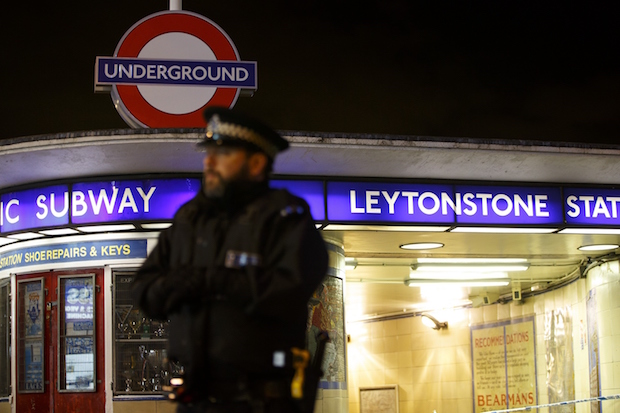The striking thing about the Leytonstone attack is that a man wielding what witnesses described as ‘maybe a hobby knife’ could be suspected of a ‘terrorist incident’. The Metropolitan Police were quick to describe the stabbing, in which the knifeman reportedly shouted ‘this is for Syria’, as such last night.
That they did shows the changing nature of the terror threat facing the country. It is no longer the case that would-be terrorists are just plotting spectacular attacks, but are quite happy to spread terror using whatever weapons they can get their hands on. This is partly because the intelligence services are getting better at disrupting such plots, which means jihadis will settle for any method that is much harder to detect. The transatlantic bombing plot, for instance, was uncovered before those involved could unleash their evil. Now the terrorists are radicalised online rather than through rogue mosques, and operate in tiny groups.
Few details about last night’s alleged attacker have been released. Perhaps it will prove not to have been a terrorist incident. Or perhaps it was indeed that. Either way, this attack shows that lone wolf attacks are something police are becoming increasingly aware of.







Comments